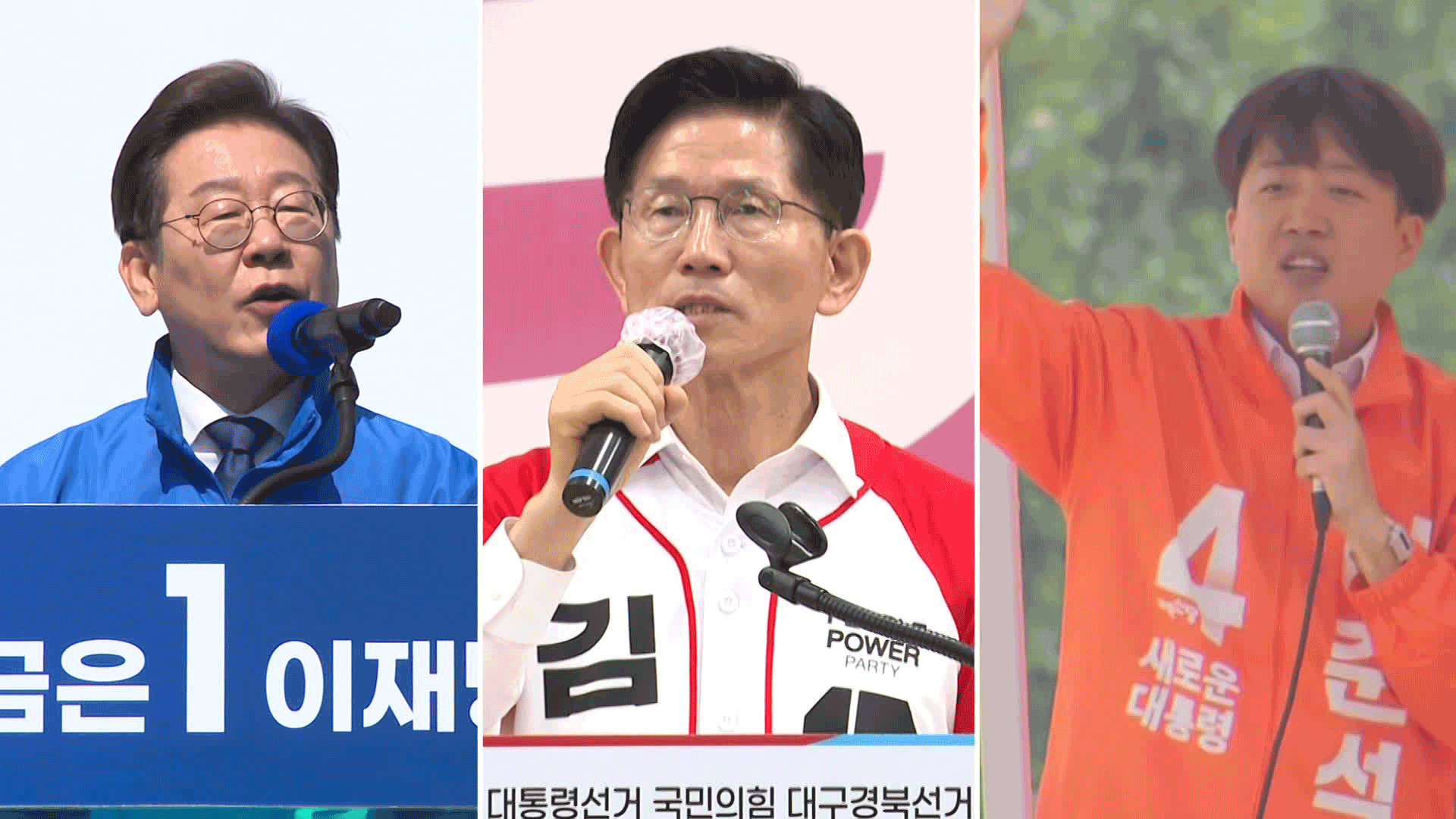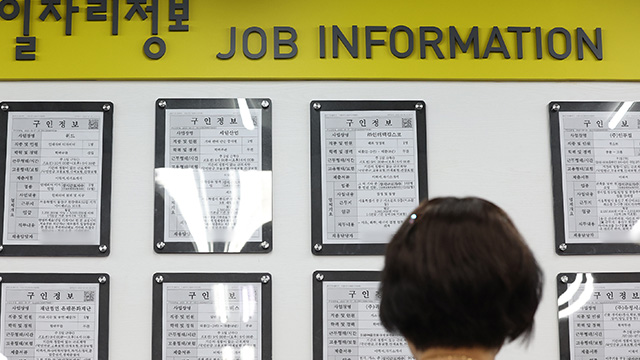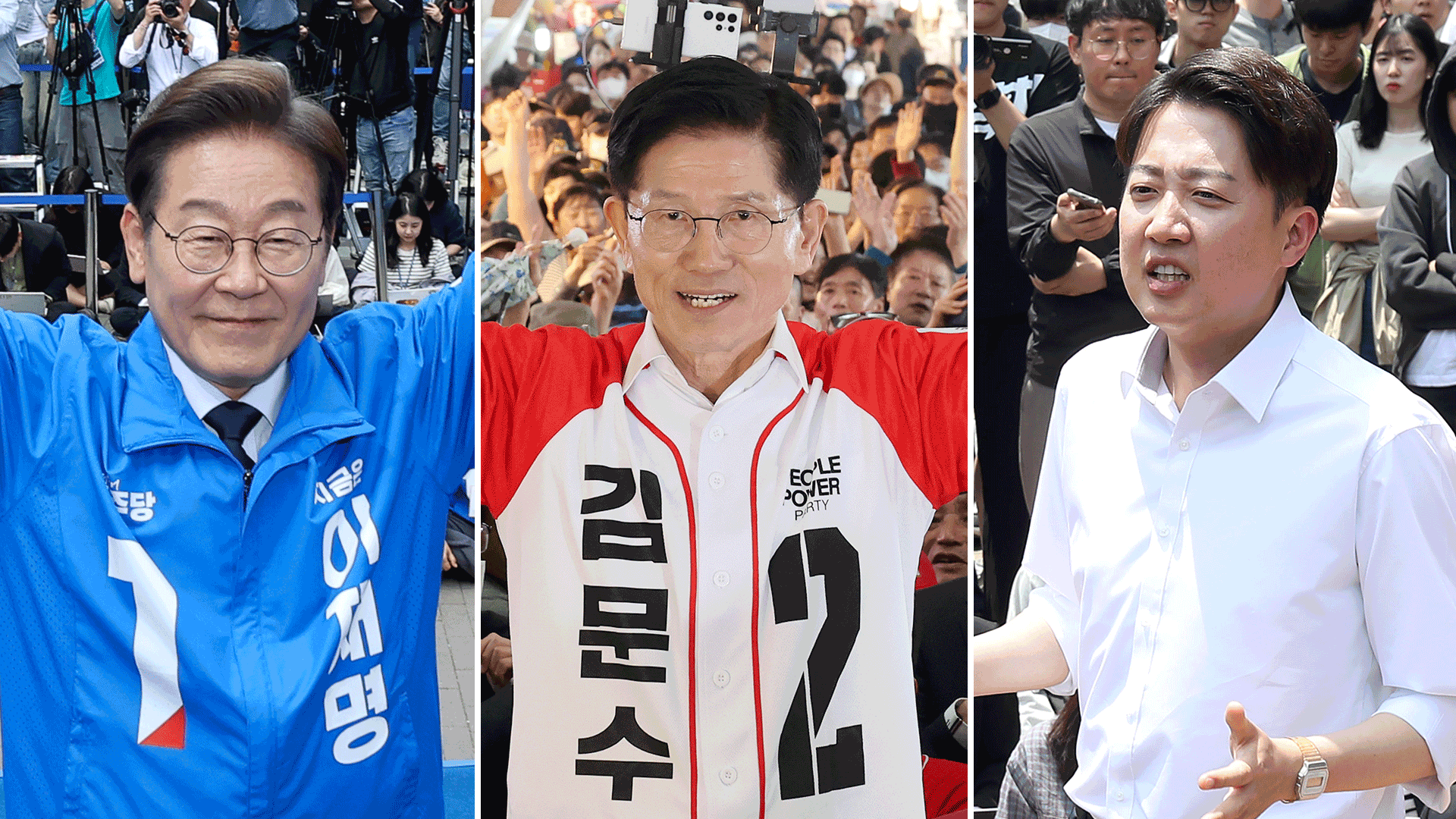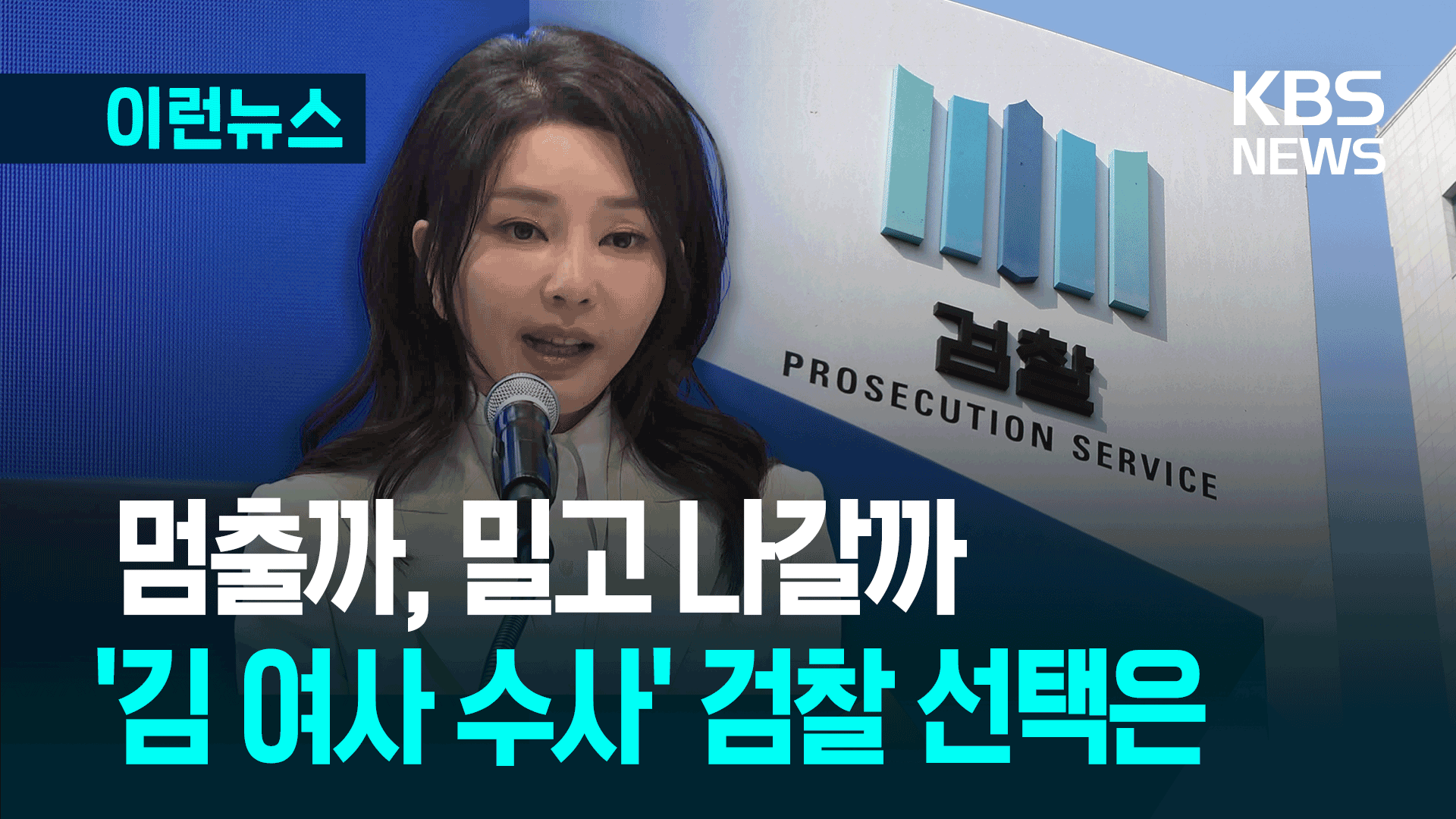[Anchor]
It is time to verify the pledges of the presidential candidates.
Today (May 13) we will discuss the judicial reform pledges.
With respect to investigation, the issues of reforming the prosecution and the Corruption Investigation Office for High-ranking Officials (CIO) are being highlighted. In the judicial sphere, the composition of the Constitutional Court and the Supreme Court are being discussed as important matters.
However, experts analyzing the pledges express concerns.
Reporter Choi Yoo-kyung has the story.
[Report]
Judicial reform pledges are a field where the positions of presidential candidates are sharply divided.
Lee Jae-myung, the candidate from the Democratic Party, stated that he would separate the prosecution's investigative and prosecutorial powers and introduce a system for dismissing prosecutors.
On the contrary, he expressed support for strengthening the CIO.
[Lee Jae-myung/Democratic Party presidential candidate/Apr. 25: "I have never seen such a prosecution. They set a goal for prosecution and conduct investigations."]
Kim Moon-soo, the candidate from the People Power Party, announced plans to abolish the CIO and to establish a crime of judicial obstruction to prevent political power from exerting undue influence on investigations and trials.
[Kim Moon-soo/People Power Party presidential candidate/Apr. 18: "I will become a president who communicates with the people. I will abolish the Corruption Investigation Office for High-ranking Officials...."]
Lee Jun-seok, the candidate from the Reform Party, also pledged to abolish the CIO.
[Lee Jun-seok/Reform Party presidential candidate/yesterday: "Despite the significant budget allocated for the operation of the Corruption Investigation Office for High-ranking Officials, the investigation results have been insufficient...."]
Kwon Young-guk, the candidate from the Democratic Labor Party, pledged to strengthen the CIO.
However, candidates who promised to strengthen the CIO did not present plans to enhance its inadequate investigative capabilities.
[Cha Jin-ah/Professor at Korea University Law School: "It has become an institution where competent people do not want to be appointed as prosecutors in the CIO. It has not operated properly even with limited personnel and organization...."]
Candidates who pledged to abolish the CIO also failed to propose measures to restore trust in the prosecution, which would regain all investigative and prosecutorial powers.
[Jeon Hak-seon/Professor at Hankuk University of Foreign Studies Law School: "The emergence of these issues stems from distrust in the prosecution, and there have been many instances where the prosecution has not properly utilized its investigative and prosecutorial powers."]
The candidates also presented plans for restructuring the Supreme Court and the Constitutional Court.
Candidate Lee Jae-myung stated that he would increase the number of Supreme Court justices to resolve the issue of trial delays, while candidate Kim Moon-soo said he would strengthen the National Assembly's confirmation standards for Constitutional Court justices to reduce political bias.
These proposals appear to be retaliatory reforms related to dissatisfaction stemming from the Supreme Court's handling of public election law cases and the impeachment of the president.
[Song Jeong-min/KBS Pledge Verification Advisory Group/Legislative Researcher at the National Assembly: "There are cases where the judiciary is discussed only from the perspective of whether it sided with the ruling party or the opposition party. Rather, we need to consider whether the judicial system has been sufficient to protect ordinary citizens, especially the socially vulnerable or minorities...."]
There are calls for voters to closely examine whether the goals of the pledges are to strengthen the independence of judicial institutions and protect the rights of the people, or if they are intended to create a judicial environment favorable to themselves.
KBS News, Choi Yoo-kyung.
It is time to verify the pledges of the presidential candidates.
Today (May 13) we will discuss the judicial reform pledges.
With respect to investigation, the issues of reforming the prosecution and the Corruption Investigation Office for High-ranking Officials (CIO) are being highlighted. In the judicial sphere, the composition of the Constitutional Court and the Supreme Court are being discussed as important matters.
However, experts analyzing the pledges express concerns.
Reporter Choi Yoo-kyung has the story.
[Report]
Judicial reform pledges are a field where the positions of presidential candidates are sharply divided.
Lee Jae-myung, the candidate from the Democratic Party, stated that he would separate the prosecution's investigative and prosecutorial powers and introduce a system for dismissing prosecutors.
On the contrary, he expressed support for strengthening the CIO.
[Lee Jae-myung/Democratic Party presidential candidate/Apr. 25: "I have never seen such a prosecution. They set a goal for prosecution and conduct investigations."]
Kim Moon-soo, the candidate from the People Power Party, announced plans to abolish the CIO and to establish a crime of judicial obstruction to prevent political power from exerting undue influence on investigations and trials.
[Kim Moon-soo/People Power Party presidential candidate/Apr. 18: "I will become a president who communicates with the people. I will abolish the Corruption Investigation Office for High-ranking Officials...."]
Lee Jun-seok, the candidate from the Reform Party, also pledged to abolish the CIO.
[Lee Jun-seok/Reform Party presidential candidate/yesterday: "Despite the significant budget allocated for the operation of the Corruption Investigation Office for High-ranking Officials, the investigation results have been insufficient...."]
Kwon Young-guk, the candidate from the Democratic Labor Party, pledged to strengthen the CIO.
However, candidates who promised to strengthen the CIO did not present plans to enhance its inadequate investigative capabilities.
[Cha Jin-ah/Professor at Korea University Law School: "It has become an institution where competent people do not want to be appointed as prosecutors in the CIO. It has not operated properly even with limited personnel and organization...."]
Candidates who pledged to abolish the CIO also failed to propose measures to restore trust in the prosecution, which would regain all investigative and prosecutorial powers.
[Jeon Hak-seon/Professor at Hankuk University of Foreign Studies Law School: "The emergence of these issues stems from distrust in the prosecution, and there have been many instances where the prosecution has not properly utilized its investigative and prosecutorial powers."]
The candidates also presented plans for restructuring the Supreme Court and the Constitutional Court.
Candidate Lee Jae-myung stated that he would increase the number of Supreme Court justices to resolve the issue of trial delays, while candidate Kim Moon-soo said he would strengthen the National Assembly's confirmation standards for Constitutional Court justices to reduce political bias.
These proposals appear to be retaliatory reforms related to dissatisfaction stemming from the Supreme Court's handling of public election law cases and the impeachment of the president.
[Song Jeong-min/KBS Pledge Verification Advisory Group/Legislative Researcher at the National Assembly: "There are cases where the judiciary is discussed only from the perspective of whether it sided with the ruling party or the opposition party. Rather, we need to consider whether the judicial system has been sufficient to protect ordinary citizens, especially the socially vulnerable or minorities...."]
There are calls for voters to closely examine whether the goals of the pledges are to strengthen the independence of judicial institutions and protect the rights of the people, or if they are intended to create a judicial environment favorable to themselves.
KBS News, Choi Yoo-kyung.
■ 제보하기
▷ 카카오톡 : 'KBS제보' 검색, 채널 추가
▷ 전화 : 02-781-1234, 4444
▷ 이메일 : kbs1234@kbs.co.kr
▷ 유튜브, 네이버, 카카오에서도 KBS뉴스를 구독해주세요!
- Judicial reform talks return
-
- 입력 2025-05-14 00:39:51

[Anchor]
It is time to verify the pledges of the presidential candidates.
Today (May 13) we will discuss the judicial reform pledges.
With respect to investigation, the issues of reforming the prosecution and the Corruption Investigation Office for High-ranking Officials (CIO) are being highlighted. In the judicial sphere, the composition of the Constitutional Court and the Supreme Court are being discussed as important matters.
However, experts analyzing the pledges express concerns.
Reporter Choi Yoo-kyung has the story.
[Report]
Judicial reform pledges are a field where the positions of presidential candidates are sharply divided.
Lee Jae-myung, the candidate from the Democratic Party, stated that he would separate the prosecution's investigative and prosecutorial powers and introduce a system for dismissing prosecutors.
On the contrary, he expressed support for strengthening the CIO.
[Lee Jae-myung/Democratic Party presidential candidate/Apr. 25: "I have never seen such a prosecution. They set a goal for prosecution and conduct investigations."]
Kim Moon-soo, the candidate from the People Power Party, announced plans to abolish the CIO and to establish a crime of judicial obstruction to prevent political power from exerting undue influence on investigations and trials.
[Kim Moon-soo/People Power Party presidential candidate/Apr. 18: "I will become a president who communicates with the people. I will abolish the Corruption Investigation Office for High-ranking Officials...."]
Lee Jun-seok, the candidate from the Reform Party, also pledged to abolish the CIO.
[Lee Jun-seok/Reform Party presidential candidate/yesterday: "Despite the significant budget allocated for the operation of the Corruption Investigation Office for High-ranking Officials, the investigation results have been insufficient...."]
Kwon Young-guk, the candidate from the Democratic Labor Party, pledged to strengthen the CIO.
However, candidates who promised to strengthen the CIO did not present plans to enhance its inadequate investigative capabilities.
[Cha Jin-ah/Professor at Korea University Law School: "It has become an institution where competent people do not want to be appointed as prosecutors in the CIO. It has not operated properly even with limited personnel and organization...."]
Candidates who pledged to abolish the CIO also failed to propose measures to restore trust in the prosecution, which would regain all investigative and prosecutorial powers.
[Jeon Hak-seon/Professor at Hankuk University of Foreign Studies Law School: "The emergence of these issues stems from distrust in the prosecution, and there have been many instances where the prosecution has not properly utilized its investigative and prosecutorial powers."]
The candidates also presented plans for restructuring the Supreme Court and the Constitutional Court.
Candidate Lee Jae-myung stated that he would increase the number of Supreme Court justices to resolve the issue of trial delays, while candidate Kim Moon-soo said he would strengthen the National Assembly's confirmation standards for Constitutional Court justices to reduce political bias.
These proposals appear to be retaliatory reforms related to dissatisfaction stemming from the Supreme Court's handling of public election law cases and the impeachment of the president.
[Song Jeong-min/KBS Pledge Verification Advisory Group/Legislative Researcher at the National Assembly: "There are cases where the judiciary is discussed only from the perspective of whether it sided with the ruling party or the opposition party. Rather, we need to consider whether the judicial system has been sufficient to protect ordinary citizens, especially the socially vulnerable or minorities...."]
There are calls for voters to closely examine whether the goals of the pledges are to strengthen the independence of judicial institutions and protect the rights of the people, or if they are intended to create a judicial environment favorable to themselves.
KBS News, Choi Yoo-kyung.
It is time to verify the pledges of the presidential candidates.
Today (May 13) we will discuss the judicial reform pledges.
With respect to investigation, the issues of reforming the prosecution and the Corruption Investigation Office for High-ranking Officials (CIO) are being highlighted. In the judicial sphere, the composition of the Constitutional Court and the Supreme Court are being discussed as important matters.
However, experts analyzing the pledges express concerns.
Reporter Choi Yoo-kyung has the story.
[Report]
Judicial reform pledges are a field where the positions of presidential candidates are sharply divided.
Lee Jae-myung, the candidate from the Democratic Party, stated that he would separate the prosecution's investigative and prosecutorial powers and introduce a system for dismissing prosecutors.
On the contrary, he expressed support for strengthening the CIO.
[Lee Jae-myung/Democratic Party presidential candidate/Apr. 25: "I have never seen such a prosecution. They set a goal for prosecution and conduct investigations."]
Kim Moon-soo, the candidate from the People Power Party, announced plans to abolish the CIO and to establish a crime of judicial obstruction to prevent political power from exerting undue influence on investigations and trials.
[Kim Moon-soo/People Power Party presidential candidate/Apr. 18: "I will become a president who communicates with the people. I will abolish the Corruption Investigation Office for High-ranking Officials...."]
Lee Jun-seok, the candidate from the Reform Party, also pledged to abolish the CIO.
[Lee Jun-seok/Reform Party presidential candidate/yesterday: "Despite the significant budget allocated for the operation of the Corruption Investigation Office for High-ranking Officials, the investigation results have been insufficient...."]
Kwon Young-guk, the candidate from the Democratic Labor Party, pledged to strengthen the CIO.
However, candidates who promised to strengthen the CIO did not present plans to enhance its inadequate investigative capabilities.
[Cha Jin-ah/Professor at Korea University Law School: "It has become an institution where competent people do not want to be appointed as prosecutors in the CIO. It has not operated properly even with limited personnel and organization...."]
Candidates who pledged to abolish the CIO also failed to propose measures to restore trust in the prosecution, which would regain all investigative and prosecutorial powers.
[Jeon Hak-seon/Professor at Hankuk University of Foreign Studies Law School: "The emergence of these issues stems from distrust in the prosecution, and there have been many instances where the prosecution has not properly utilized its investigative and prosecutorial powers."]
The candidates also presented plans for restructuring the Supreme Court and the Constitutional Court.
Candidate Lee Jae-myung stated that he would increase the number of Supreme Court justices to resolve the issue of trial delays, while candidate Kim Moon-soo said he would strengthen the National Assembly's confirmation standards for Constitutional Court justices to reduce political bias.
These proposals appear to be retaliatory reforms related to dissatisfaction stemming from the Supreme Court's handling of public election law cases and the impeachment of the president.
[Song Jeong-min/KBS Pledge Verification Advisory Group/Legislative Researcher at the National Assembly: "There are cases where the judiciary is discussed only from the perspective of whether it sided with the ruling party or the opposition party. Rather, we need to consider whether the judicial system has been sufficient to protect ordinary citizens, especially the socially vulnerable or minorities...."]
There are calls for voters to closely examine whether the goals of the pledges are to strengthen the independence of judicial institutions and protect the rights of the people, or if they are intended to create a judicial environment favorable to themselves.
KBS News, Choi Yoo-kyung.
-
-

최유경 기자 60@kbs.co.kr
최유경 기자의 기사 모음
-
이 기사가 좋으셨다면
-
좋아요
0
-
응원해요
0
-
후속 원해요
0










![[속보] ‘서부지법 사태’ 첫 선고…‘폭력 난입’ 30대 <br>징역 1년 6개월](/data/news/2025/05/14/20250514_RZbXu8.jpg)




이 기사에 대한 의견을 남겨주세요.